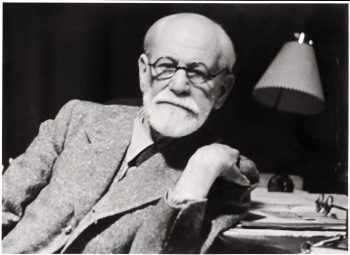 “CRUNCH!” What was that? I turned to look forward and saw the emergency phone pole. It suddenly became painfully obvious that I had been wrong. I had thought the pole was put there for someone to use the phone in case of emergency. But no, it looks like the pole was actually put there to create an emergency. I got out of the car to survey the damage…and yes, I had just totaled my car going 10mph through an otherwise empty parking lot.
“CRUNCH!” What was that? I turned to look forward and saw the emergency phone pole. It suddenly became painfully obvious that I had been wrong. I had thought the pole was put there for someone to use the phone in case of emergency. But no, it looks like the pole was actually put there to create an emergency. I got out of the car to survey the damage…and yes, I had just totaled my car going 10mph through an otherwise empty parking lot.
I was angry at myself, but I wanted to blame whoever designed the lousy parking lot. Why on earth would they put FOUR emergency phone poles scattered out in the middle of a parking lot that’s not much bigger than your average supermarket lot? Do they really think that many people are going to have emergencies all at once? For that to occur, something major would have had to happen-like if somebody is bombing the city, in which case nobody would need to be using the emergency phones. I’d be willing to bet nobody has ever used any of the phones. One phone on the side of the fence would have sufficed. Also, they made the parking spaces so narrow that if you aren’t in an end space, then you may only have about six inches to get in and out of the car.
My embarrassment was laid bare when I had to explain the accident to the insurance lady. My responses to her questions went something like this:
“Yes ma’am, it was 7am. I was coming to work. I hit a pole in the middle of the parking lot. No, the pole wasn’t damaged – they make those things to last, but the car – not so much.”
“No ma’am, I had not been drinking any alcohol.”
“No ma’am, I don’t use street drugs.”
“No ma’am, I was not using my cell phone.”
“Yes ma’am, I hit a bright yellow emergency pole that was all by itself out in the middle of the parking lot. Did you know bright yellow poles don’t look so bright yellow with sun glasses on? Anyhow, I had looked to see there were no cars or people in that area of the parking lot, and then I had my head turned while I was looking to circle around to get an end parking space so that I could get out of my car without having to worry about whacking somebody else’s car door when I get out of my car. Next thing I knew was the pole had stopped my car. Do you know that lots of other people have hit that pole, too?”
“No ma’am, I was not doing donuts in the parking lot. Believe it or not, I’m actually a respected physician…, or at least I used to be.”
In my book, Live, Love, and Let Go, I discuss the themes of attitude, focus, and perspective. If you have a problem, whatever the problem may be, then reemphasizing on keeping a positive attitude, focusing on your faith, or looking at it with a different perspective will help with how well you cope with the situation. In the case of my totaled car, it would be easy to remain angry, mad, embarrassed, and get depressed over the situation. Instead I chose to keep a positive attitude and look at the situation from a different perspective:
- There are a couple hundred people that work in my building. It was amazing that all of them seemed to know all about my car. People I didn’t even know came up to me. Instead of being completely embarrassed, I choose to feel good that so many people know who I am.
- I could be upset over rising insurance rates. Instead, I’m glad that I have insurance that will give me money to help buy another used car.
- My car had been a used car (2003). It’s much better to wreck a used car then a new car.
- My kids are happy. They figure they have a pass in case they ever wreck a car.
- My wife is happy as I’ve proved to the world that I’m human.
- I’m happy that I haven’t done anything this dumb in a long, long, time.
This episode also highlighted a couple of valuable concepts to me. The first is that when you make a mistake, it’s best to just fess up and admit it from the outset. Mix in a little self-deprecating humor and people will often identify with you and even give advice. In my case, many people came up to tell me about other people hitting that pole. Advice included suggestions for a replacement car (including not to get a new one), and ‘be careful in parking lots.’ The concept of owning a mistake is something that many politicians would do well to heed.
The second important concept relates back to perspective. We all go through difficult events and times in our lives. From a perspective standpoint, it helps to ask yourself if the problem will matter 5, 10, 50, or even 100 years from now. If you project far enough out into the future, the problem will become trivial. After all, someday in the afterlife, we will be reunited with loved ones in a loving and forgiving environment. Our current problems will be small in comparison. Use this concept to ease your troubles. It will let you let you find humor when relatively small things like trashing your car happen.
We will explore another perspective on life’s difficulties in the next blog. Until next time, peace be with you and watch out for those bright yellow emergency poles…they can be hard to see! – James

 and reliving their childhood to find the source of their problems. Most modern psychologists are no longer doing Freudian psychoanalysis. Instead, the focus is on CBT (Cognitive Behavioral Therapy) which tries to change thoughts, behaviors, and emotions. CBT may be combined with medications. CBT makes more practical sense by treating patient’s present and future emotions, rather than reviewing the past.
and reliving their childhood to find the source of their problems. Most modern psychologists are no longer doing Freudian psychoanalysis. Instead, the focus is on CBT (Cognitive Behavioral Therapy) which tries to change thoughts, behaviors, and emotions. CBT may be combined with medications. CBT makes more practical sense by treating patient’s present and future emotions, rather than reviewing the past. Our negative thoughts frequently involve beating ourselves up over something we did or didn’t do. We must learn to forgive ourselves in order to stop these negative thoughts. CBT asks us to look at the situation as if it was your friend instead of you. Almost all of the time, we would say that we would tell a friend that whatever happened was not a big deal and we should just forgive, forget, and move on. This technique is very successful. But what if we really did something seriously wrong and we are not able to forgive ourselves? This is where adding the application of Christian faith to CBT is essential. Let’s look at 3 advantages of the Christian faith that can turn our lives to the positive:
Our negative thoughts frequently involve beating ourselves up over something we did or didn’t do. We must learn to forgive ourselves in order to stop these negative thoughts. CBT asks us to look at the situation as if it was your friend instead of you. Almost all of the time, we would say that we would tell a friend that whatever happened was not a big deal and we should just forgive, forget, and move on. This technique is very successful. But what if we really did something seriously wrong and we are not able to forgive ourselves? This is where adding the application of Christian faith to CBT is essential. Let’s look at 3 advantages of the Christian faith that can turn our lives to the positive: which includes helping each other, spreading love, peace, hope, faith, and sharing His Word. This positive purpose to our lives should provide us the drive and need to move forward in positive fashion. We don’t accomplish the purpose by moping, worrying, and agonizing over negative thoughts.
which includes helping each other, spreading love, peace, hope, faith, and sharing His Word. This positive purpose to our lives should provide us the drive and need to move forward in positive fashion. We don’t accomplish the purpose by moping, worrying, and agonizing over negative thoughts.

 Now I have heard some doctors say that CBT and faith are not really compatible. The reasoning was that faith relies on the spiritual belief while CBT relies on western scientific deduction. They felt CBT was what people should turn to when faith was not working to solve the problem.
Now I have heard some doctors say that CBT and faith are not really compatible. The reasoning was that faith relies on the spiritual belief while CBT relies on western scientific deduction. They felt CBT was what people should turn to when faith was not working to solve the problem.